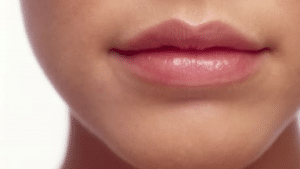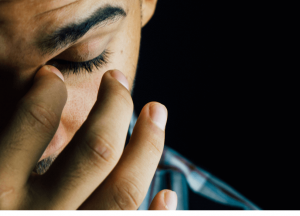Causes
An unintentional habit, bruxism often is associated with stress and how one copes with stress. Individuals with nervous tension (including anger, pain, or frustration) frequently go through periods in which they grind or clench their teeth.

If you know or suspect that you habitually grind or clench your teeth, it is important to see your dentist.
We will evaluate your teeth, identify the possible cause, and devise a plan to protect your teeth from damage.
Symptoms
You may not even realize that you are clenching or grinding your teeth, but there are several signs to watch for.

- Sore or tired jaw
- Dull headaches or facial pain
- Teeth worn from grinding
- Earaches
- Sensitive teeth
If you have any of these symptoms, you may be one of the many people who clench or grind their teeth. Called ‘bruxism’, this may occur at any time – you may not be aware of doing it, especially if you are grinding your teeth while you sleep.
Consequences
Grinding and/or clenching can cause damage to your teeth, mouth, and jaw.
Damage can include:
- Chipped tooth enamel
- Flattened, grooved, worn-down teeth
- Loosened teeth
- Cracked teeth
- Jaw muscle and/or joint problems
- Tooth loss
Treatment
At every check-up, the dentist and hygienist look for signs of excessive tooth wear. The semi-annual check-up is an ideal time to discuss your concerns with grinding or clenching and the associated symptoms. There are treatments available that can help.

One of the most common first steps in treatment is to make a plastic bite splint that will protect your teeth from further damage. Typically, this bite splint is worn on the lower jaw, while sleeping. The plastic splint protects the teeth by slightly opening the resting position of your teeth and preventing the teeth from making direct contact. Wear patterns on a bite splint are preferable to cracked tooth enamel or teeth! Bite splints may even be recommended when grinding is mild, if your bite will benefit from extra protection.
Stress
So common and so difficult to eliminate from our lives, stress is one of the main causes of clenching and grinding.

It is important to find ways to reduce the effects of stress on our health. There are many therapies available for excessive stress, including but not limited to exercise, counselling, meditation, and muscle relaxants. Your dentist can help you to find ways to alleviate the effects of stress on your oral health.
What you can do to help
Sometimes small lifestyle changes can have a big effect on your overall health. The same is true for bruxism.
In addition to any treatments recommended by your dentist, there are many things you can do to help yourself.
- Avoid or cut back on foods and drinks that contain caffeine (eg. colas, chocolate, coffee, tea)
- Avoid chewing gum or hard foods
- Avoid cradling the phone on your shoulder – this can strain the muscles in your neck and jaw
- Avoid alcohol. Grinding tends to intensify after alcohol consumption
- Get plenty of rest and avoid sleeping pills
- Exercise regularly
- Maintain good posture, especially while sitting and concentrating
- Avoid chewing on pens, pencils, or anything that is not food
- Stay aware of the effect stress is having on your life and try to consciously control your reaction to it
- When you notice that your teeth are clenched, make a practice of consciously relaxing your jaw and repositioning your tongue and teeth.
Kids and grinding
Clenching and grinding is not limited to adults.
Approximately 15-33% of children grind their teeth.
Children who grind tend to do so at two peak times: when their baby teeth emerge and when their permanent teeth erupt. Most children will lose the habit after these two sets of teeth have fully come in.
Children most commonly grind their teeth during sleep rather than during waking hours. The reasons for this can include improperly aligned teeth, irregular contact between upper and lower teeth, illness, and other medical conditions (eg. nutritional deficiencies, pinworm, allergies, and endocrine disorders). Like adults, children can also be grinding their teeth as a response to psychological issues including anxiety and stress.
How to help kids

- Decrease your child’s stress, especially just before bed
- Try massage and stretching exercises to relax jaw muscles
- Ensure that your child is drinking plenty of water; dehydration may be linked to teeth grinding
- Tell your dentist if you suspect that your child is grinding his/her teeth
Grinding of baby teeth rarely results in problems; however, long-term teeth grinding can cause jaw pain, headaches, wear on teeth, and temporomandibular joint disease. If you child’s teeth look worn or if they complain of pain or sensitivity, they may be grinding their teeth. Be sure to discuss it with your dentist.
Whatever your age, don’t ignore the problem
Grinding may stop on its own, but, if left untreated, it can damage teeth and jaw joints, and cause chronic muscle problems. The best and most important step in treating bruxism is to discuss your concerns with your dentist. Together, we can develop a treatment plan that is right for you.
Grinding can destroy teeth. Treatment can prevent problems and help to maintain your smile.




